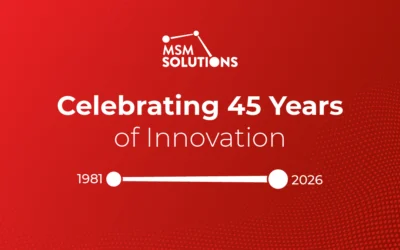In January 2022, Walmart recommitted to using RFID technology to better track and manage their inventory – specifically home and hard goods. A year later, they expanded their RFID initiative to include additional general merchandise like media, games, crafts, cameras, books, automotive, and lawn & garden. By February 1, 2024, the retail giant wants all required products to be tagged by the supplier before they hit the shelves.
Retail RFID Compliance
That means you need to take the necessary steps to ensure you maintain RFID compliance with not only Walmart but with other retailers like Target, Macy’s, Dillard’s, and Sam’s Club. To help you prepare for the upcoming changes, here are some key things to consider so you can make decisions that help protect your ROI.
- RFID Service Bureau vs. Print & Encode In-House
Every business is different, so your best option depends on the scale of your operation. Printing your own tags prevents wasted and excess tag inventory while maintaining control in house. A service bureau can be a good option when sourcing products from contract manufacturers. - Printing and Encoding In-House
If you’re printing and encoding in-house, will you integrate the process with your existing barcode printing systems like enterprise resource planning (ERP) and warehouse management system (WMS)? You might also consider a stand-alone label design tool like BarTender or a custom solution using MSM Solutions PortalTrack. - Serialization Management
The purpose of the RFID tag is to provide a unique identifier or serial number to every product. The EPC value is essentially your UPC + a unique serial number. Serialization is typically done through a managed serialization process where you assign unique values or through Multi-Chip Serialization (MCS) where you are appending a portion of the already provided unique serial number in the chip to the UPC. Both methods are GS1 approved. - ARC Categories
The RFID Lab ARC Program at Auburn University designates and certifies RFID tags for use in retail, aviation, manufacturing and other industries. Before printing RFID tags, you need to know what category you fall under and understand the inlay options available. - Locking Commands
Different RFID chip types carry command codes that allow you to lock selected memory storage so it can’t be updated, altered or erased. - UPC/EPC Code Verification
Reading and confirming RFID encoding for tags printed in-house is necessary to ensure the UPCs and EPCs assigned are being encoded on the tags correctly. Mobile readers can be used to confirm you have the correct code and chip type. - Forecasting Label Demand
Like any resource for your business, the ability to forecast your RFID label needs helps you make decisions for the business and help protect your ROI.
Why MSM Solutions is the Retail RFID Expert You Need
For over 30 years, MSM Solutions has provided innovative retail RFID solutions to help you meet your business goals. As one of the leading integrators of barcode and RFID technology, we help suppliers and manufacturers meet the RFID requirements of retail giants like Walmart, Target, Macy’s, Kohl’s, JCPenney, Nordstrom and Dillard’s.
As a GS1 U.S. apparel and general merchandise initiative solution provider, MSM Solutions helps brands maintain retail RFID compliance. We accomplish this by:
- Understanding ARC requirements
- Printing and encoding millions of RFID tags
- Providing verification and validation
- Performing custom software integration with different ERP and WMS systems with PortalTrack.
- Service Bureau delivering RFID tags to customers worldwide
To learn more about how the retail RFID rollouts will affect your business, drop us a line. We can help you understand the requirements so you can adopt and deploy the right solution for your business.


